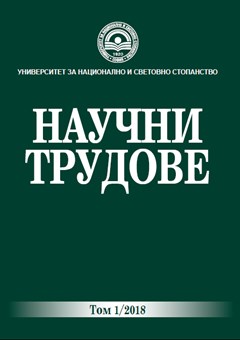Евроскептицизъм – същност, причини, проявление
Euroscepticism - Nature, Cause, Manifestations
Euroscepticism in Some East European EU-members
Author(s): Geоrgi TchankovSubject(s): Political behavior, Nationalism Studies, Globalization, Politics and Identity
Published by: Университет за национално и световно стопанство (УНСС)
Keywords: Euroscepticism; Europeanism; neoliberalism; ideology; values; crisis; conservatism; nationalism; polls; Eastern Europe.
Summary/Abstract: The Aim of this paper is to explore the Euroscepticism (manifestations, essence, tendencies) through historical and empirical data analysis, adding so new value to other analyses. The paper focuses mostly on the Euroscepticism in Eastern Europe as a new and problematic phenomenon. It is part of the "populism"- a reaction against the elites and the losses of the globalist post-industrial development. Euroscepticism contests the elitist nature of the EU, its functioning and policies. Euroscepticism is a reaction against the vague and amorphous ideology of "Europeanism". The clash with the basic values of "Europeanism"does not allow compromises. Euroscepticism gained strong political positions, particularly in Central Europe. It represents a manifestation of nationalism and expresses the reaction against imposing alien values. In Bulgaria it looks weak – the EU-membership is still considered a salvation, due to the disastrous results of the transition to democracy. There is still the hope that the union will solve the problems that the state already can’t. Results: Euroscepticism is not a temporary phenomenon, dependent on the conjuncture. It reflects serious discrepancies between the elitist project of integration and the expectations of the citizens. Neglecting or condemning the phenomenon will hamper the understanding of the real problems of the EU.
Journal: Научни трудове на УНСС
- Issue Year: 1/2018
- Issue No: 1
- Page Range: 197-244
- Page Count: 48
- Language: Bulgarian

